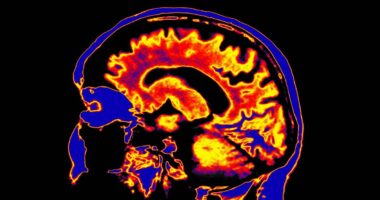Share this @internewscast.com
Eating a popular breakfast food could help lower your risk of dementia, according to research. A study found that eating more than one of these each week could reduce your chances of developing Alzheimer’s disease.
Dementia is a progressive syndrome that affects almost one million people in the UK. The condition causes the gradual deterioration of cognitive abilities, leading to symptoms such as memory loss and behavioural changes.
While the risk of developing dementia can be hereditary and thus, inevitable, researchers suggest that nearly 45% of cases could be averted through specific lifestyle modifications.
These alterations encompass quitting smoking, reducing alcohol consumption, and managing blood pressure. Diet is another crucial element, with health organisations advocating for a balanced diet or adherence to a Mediterranean diet to decrease dementia risk.
A particular food has been associated with a reduced risk of Alzheimer’s disease, the most prevalent form of dementia in the UK, according to a study. The research, published in the Journal of Nutrition, discovered that consuming eggs could aid in warding off the condition.
The authors of the study highlighted that eggs are loaded with nutrients “important for brain health”, including choline, omega-3 fatty acids, and lutein.
As part of their investigation, a US team scrutinised data from over 1,000 participants, deemed to be of advanced age. Their dietary habits were recorded in a food frequency questionnaire which tracked their weekly egg consumption.
During a subsequent period of roughly six years, 280 participants were diagnosed with Alzheimer’s disease. The researchers concluded that those who consumed more than one egg per week had a lower dementia risk compared to those who ate fewer.
The authors of a recent study have shed light on the potential benefits of eggs in combating Alzheimer’s disease (AD), a condition increasingly prevalent due to an ageing population. They noted: “Alzheimer’s disease (AD) is a neurodegenerative disorder with increasing prevalence due to population ageing. Eggs provide many nutrients important for brain health, including choline, omega-3 fatty acids, and lutein.”
They went on to suggest that “Emerging evidence suggests that frequent egg consumption may improve cognitive performance on verbal tests, but whether consumption influences the risk of Alzheimer’s dementia and AD is unknown.”
The research highlighted the significant impact of choline, found in eggs, on dementia risk reduction, stating: “39% of the total effect of egg intake on incident Alzheimer’s dementia was mediated through dietary choline.”
Wrapping up their findings, the study concluded: “These findings suggest that frequent egg consumption is associated with a lower risk of Alzheimer’s dementia and AD pathology, and the association with Alzheimer’s dementia is partially mediated through dietary choline.”
Echoing these results, a 2022 study published in Frontiers in Nutrition also linked egg consumption with a decreased risk of dementia, particularly Alzheimer’s.
Find out about the symptoms you need to watch out for and get health advice with our free health newsletter from the Daily Express
However, this correlation was specifically observed in individuals who were not already adhering to a Mediterranean diet, known for its abundance of fruits, vegetables, whole grains, and healthy fats.
To reduce the risk of dementia, the NHS offers several recommendations.
- Ensuring a balanced diet
- Maintaining an optimal weight
- Regular physical activity
- Moderating alcohol consumption within recommended guidelines
- Quitting smoking
- Maintaining healthy blood pressure levels.














